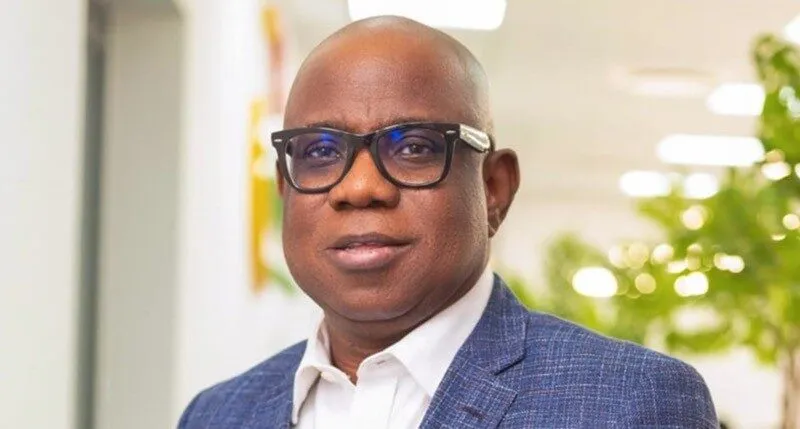
The Group Chief Executive Officer of the Nigerian National Petroleum Company Limited (NNPC Ltd), Bashir Ojulari, has raised alarm over the severe economic and energy impacts of the recently suspended strike by the Petroleum and Natural Gas Senior Staff Association of Nigeria (PENGASSAN).
In a letter titled “Impact Assessment of Ongoing Industrial Action”, dated September 29, 2025, and addressed to key government institutions including the Nigerian Midstream and Downstream Petroleum Regulatory Authority (NMDPRA) and the Nigerian Upstream Petroleum Regulatory Commission (NUPRC), Ojulari outlined the losses Nigeria suffered within just 24 hours of the nationwide walkout.
According to him, the strike resulted in the shutdown of major oil terminals, gas plants, and power facilities, causing:
- A deferment of 283,000 barrels of crude oil per day
- 1.7 billion standard cubic feet of gas taken offline daily
- Over 1,200 megawatts of lost power generation
These losses, he said, equated to 16% of national oil output, 30% of marketed gas, and 20% of Nigeria’s power supply all within a single day.
“The impacts are projected to intensify if the disruption continues, posing a material threat to national energy security,” Ojulari warned.
The letter, also copied to the National Security Adviser and the Director-General of the Department of State Services, detailed a worsening financial situation.
Ojulari revealed that nearly 100,000 barrels per day of crude oil and 1.34 billion scf of monetised gas that were due to return to production this week have now been delayed. Scheduled critical maintenance on several upstream assets was also suspended, including: USAN turnaround, AKPO GT-3 pigging, H2 well tests, Annual compressor maintenance and SEPNU EAP IGE.
He further disclosed that ongoing loading operations were stalled, particularly at the Brass Terminal, where NNPC crude was set for export. Documentation delays triggered demurrage costs, increasing Nigeria’s financial exposure.
While some crude export activities continued via non-union staff, Ojulari stressed that operations were “heavily constrained” and at risk of further setbacks, including demurrage penalties from international trading partners.
“This industrial action is not just about one company. Its effects ripple across the energy ecosystem, threatening cash flow, infrastructure, and economic stability,” the NNPC chief noted.
Strike Suspended — But Union Remains on Edge
PENGASSAN announced the temporary suspension of the nationwide strike after the Federal Government’s intervention, but warned that the action could resume without notice if commitments are breached.
The strike stemmed from an escalating dispute between the union and Dangote Petroleum Refinery, with PENGASSAN accusing the company of union busting, unlawful dismissals, and replacing Nigerian workers with expatriates, allegations the Dangote Group denies, attributing workforce changes to “operational restructuring.”
Speaking at a press briefing in Abuja, PENGASSAN President Festus Osifo clarified that the suspension was not an endorsement of the refinery’s conduct but a show of respect for the government’s role.
“We are not calling off the strike. We are only suspending it. If any part of the agreement is broken, we will resume industrial action immediately without further notice,” Osifo warned.
Osifo strongly pushed back against claims that the strike was about check-off dues (union fees), calling such assertions “laughable.”
“This struggle is about the right to associate and the right to fair compensation,” he said. “The 800 workers affected earn far less collectively than a small branch of ours at Chevron or ExxonMobil. It’s not about money, it’s about dignity and rights.”
He also dismissed fears that PENGASSAN’s action could harm the Dangote investment.
“Shell, Chevron, and TotalEnergies have had thousands of PENGASSAN members and have invested hundreds of billions. We didn’t kill their investments. We helped them grow. So, no, we’re not out to destroy anything,” Osifo said.
According to Osifo, the union remains unconvinced that Dangote Group will fully comply with the resolutions facilitated by the Ministry of Labour. He revealed that PENGASSAN did not sign the communiqué issued after the talks due to unresolved “grey areas.”
“We have respect for institutions. That’s why we suspended the strike. But let no one mistake that for trust in Dangote. We believe they may not honour their side of the deal,” Osifo said, stressing the union’s intention to hold the group accountable.
Final Word from NNPC
NNPC’s leadership is urging for a long-term resolution to prevent future disruptions of this magnitude. Ojulari called for strengthened frameworks that protect both worker rights and national energy security.
“This is bigger than Dangote or PENGASSAN. It’s about Nigeria’s energy future and financial stability,” he said.



